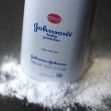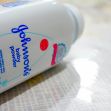Regardless of whether the litigant is the plaintiff or the defendant, it is difficult to prove a 50-year-old case based on alleged exposure to a toxic substance. The link between asbestos and mesothelioma has been scientifically proven. But the lack of the specific evidence needed to link the death of one woman to her talcum powder usage has led to the reversal of a summary judgment ruling against her. Now, her husband will get a chance to prove his late wife’s cause of death. She died while waiting for her appeal to be heard.
Fermin Ramirez, the husband of the late Alicia Ramirez, alleges that her exposure to asbestos from talcum powder produced by the Avon cosmetics company from the mid-70s to 2007 caused Alicia’s mesothelioma, a cancer that attacks the tissue that covers most internal organs. (For clarity both Ramirezes will be referred to by their first names).
During the trial, Avon argued that the talcum they sold was asbestos free. However, the only evidence they produced to prove this was the testimony of one employee who had not been working at the company until halfway through Alicia’s exposure.
The error that caused the trial court to dismiss plaintiff’s case because of one employee’s deposition and her documents shifted the burden of proof to Alicia. A January 23 ruling from Division Eight of the Second District of the California Court of Appeals reversed that decision, and now Fermin will get another chance for a fair determination about the cause of his wife’s death. Presiding Justice Maria E. Stratton wrote the unanimous, published opinion from a three-judge panel that reversed the summary judgment order of Los Angeles County Superior Court Judge David S. Cunningham.
The case stems from Alicia’s alleged use of Avon’s Imari and Elusive brands of talcum powder for over 30 years. When she was diagnosed with mesothelioma, she sued Avon for negligence due to a design defect in the powder, for Avon’s strict liability, for failure to warn, and for fraud due to the company’s non-disclosure.
Avon brought a motion for summary judgment on the grounds that Alicia could not prove that she came in contact with the contaminated powder. Avon also insisted that it never used asbestos in any of its talcum powders. This shifted the burden of proof to Alicia, who then had to show that it was more likely than not that Avon’s talc products contained asbestos.
Fermin’s appeal rests on the faulty evidence Avon produced to prove it never used any asbestos ingredients in its talcum powders. Avon’s only evidence was a declaration by Lisa Gallo, who, at the time of the trial, was the company’s Vice President of Global Innovation, Research and Development. But Gallo, who was Avon’s designated witness for Alicia’s case, only started working at Avon in 1994. Nonetheless, her deposition declaration averred that her statements were “based on either my investigation or my personal knowledge.” This was not accurate because she did not have personal knowledge of events that occurred before she even started working at Avon. Therefore, all her statements were just hearsay.
Despite this problem, Judge Cunningham ruled against Alicia because she failed to show a triable issue of material fact. This shifted the shifted burden of proof to Alicia. Cunningham’s minute order reiterated all of Gallo’s purported evidence about Avon’s safety procedures. Even though Gallo didn’t work there at the necessary time, the Judge concluded that Avon “never included or used asbestos as an ingredient or component of its cosmetics products.”
He repeated Gallo’s declaration about how, since the early ’70s, Avon had internal screening and testing programs for quality assurance. The Judge believed that Avon ordered suppliers to make sure their raw-ingredient talc was asbestos-free. His order repeated Gallo’s statements that “No talc was used in any Avon cosmetic product if even a single asbestos fiber was detected during Avon’s three-step screening program.” Stratton’s opinion said there was no dispute that all the evidence Cunningham relied on came from Gallo’s declaration and “it was solely that declaration which shifted the burden of proof.”
Stratton’s opinion explained that Avon, the party moving for summary judgment, bore the burden of proving that Alicia had presented no issue of material fact. Avon argued that Alicia “does not possess, and cannot reasonably obtain, needed evidence.” The Justice said that the trial court abused its discretion when it relied on Gallo’s declaration despite her “lack of personal knowledge and the hearsay nature of the documents.”
Avon argued that Gallo’s status as its “designated corporate representative and the person most knowledgeable” about the company’s asbestos program allowed her to “legally obtain and provide the (necessary) foundational testimony.” Ramirez countered that Gallo was not an expert witness, so she could only testify about issues for which she had personal, not hearsay, knowledge. Based on the Evidence Code, Stratton agreed. She wrote that the Code does not exempt “corporate representatives” or “persons with the most knowledge” from its rules. She concluded that Gallo is only “a lay witness.”
In addition, Avon had the burden of producing the “right witness,” and Gallo was not that person because she had no knowledge of what occurred at the company before she was hired. Stratton said there is no law that would allow Gallo to be exempt from the requirements of the rules of evidence and Avon’s argument about Gallo having an exemption from the Evidence Code was “simply nonsense.”
Also, the court did not know the source or accuracy of the numerous documents Gallo relied on to prove that Avon’s safety measures were taken. All of Avon’s documents were therefore either hearsay themselves or contained hearsay statements made by others. The trial court also abused its discretion because of the age of Avon’s documents and the limited information they contained.
The opinion also found that Avon “forfeited its claim” that appellant’s discovery responses were “factually devoid” because they were not raised in a timely fashion. All of Avon’s arguments, Stratton said, were “variations” of its contentions that all of its talcum products were asbestos free. Only Gallo’s hearsay statements as a lay witness and her questionable documents were offered as proof.
The appellate court reversed summary judgment and remanded the matter for further proceedings.
When the case goes forward, Fermin will likely suffer from his own lack of evidence. Both sides will no doubt face difficulties producing and proving what actually happened 50 years ago.






